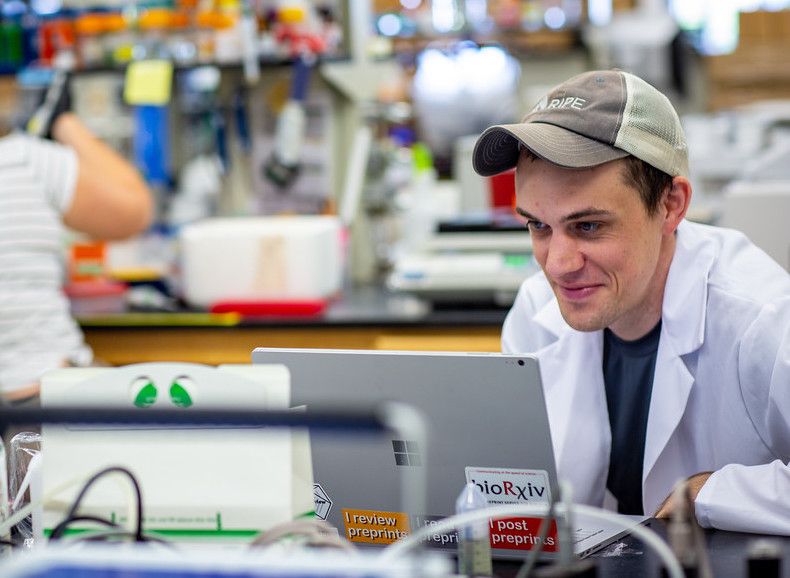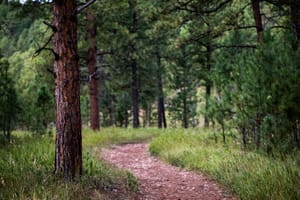We know many of you have wondered who we should thank for kick-starting ecrLife? The answer: Steven Burgess and eLife! In 2018, eLife started their first Community Ambassadors program. This program brings early career researchers from all over the world together. It provides them with a platform to discuss our research culture, and to come up with initiatives to improve it. As you can imagine, many thoughts, ideas and projects sprouted out of this program, but initially there was no good way for the ambassadors to share their suggestions with the broader research environment. At the time, Steven was the community manager at eLife who oversaw the ambassadors program. Realizing the need for a communication outlet, Steven started ecrLife. Initially, only community ambassadors could submit pitches to the blog. But we soon realized that the urge to advocate for change and to share experiences is something shared by many ECRs, and turned ecrLife into a place where any ECR can share their story, their insights, or their action plans. All of this is thanks to Steven! While we don’t want to take too much away from Steven’s story, we find his career path incredibly inspiring. It shows us that we should not be afraid to experiment with career paths, as long as we pursue our passion. Steven is incredibly passionate about promoting Open Science, Preprint publishing and increased protocol transparency. When he is not in the lab, you can find Steven hanging out with his cat (Banoffee) and baking with his wife (big fan of The Great British Bake-Off).
In a few sentences, could you introduce yourself, tell us where you are (both geographically and along your career path?) and what you study?
Steven Burgess (SB) Hello! I’m blushing a bit after that intro, and really want to highlight that I’m so impressed with how the blog has grown under the vision of the community ambassadors and ecrLife editors. It way exceeds anything I ever envisioned! I am currently living in the middle of a cornfield in the US - the small college town Champaign-Urbana, Illinois. I am British, and grew up in the north west of England to a English father and Scottish mother. After studying biochemistry at the University of Edinburgh I pursued a Ph.D in molecular biology where I worked on metabolic engineering of green algae for biofuel production. I moved to the University of Cambridge where I did two postdocs using genomics to investigate evolution of an efficient form of photosynthesis. I reached the point that many postdocs do, and considered my career options, moving to work at eLife for a year as an editorial community manager. This was a fantastic experience where I learned a lot about open science, and good practice in publishing. However, I still felt the call of research so moved to Illinois to join the realizing increased photosynthetic efficiency project funded by the Bill and Melinda Gates Foundation. This was meant to be a temporary move, but Champaign has a habit of sucking people in, so I am incredibly fortunate to be starting as an Assistant Professor in the Plant Biology Department here in the autumn, focusing on Plant Synthetic Biology.
What do you enjoy the most about being a scientist?
(SB) Being a scientist fulfills my key motivations. I have always been driven by a need for meaning in my work, and I get this through the opportunity to make a positive impact on the world, both through my interactions with students and colleagues and through my scientific outputs, which I hope one day will be translated into improved crop varieties. In addition, being a scientist means I get to solve problems on a regular basis, think of new projects and discuss cool ideas with smart, interested people!
What do you see as your key challenge as a scientist? OR what is the greatest scientific challenge you have overcome so far?
(SB) My key challenge as a scientist is to improve crop yield by boosting photosynthesis. We have made huge strides over the last century to increase crop production through conventional breeding and this has helped sustain global population growth. However, this has come at an environmental cost, and the same methods we used previously are having lower returns. This means we need to do something different. Addressing problems such as maintaining and increasing food production while reducing the environmental footprint is a multifaceted challenge and will involve political, economic and scientific efforts in working in concert. There are lots of excellent researchers tackling this challenge, and one thing I would like to see more of is interactions between life and social scientists, they often seem to exist in different worlds and everyone suffers. But I’m an optimist!
What is the main change that you would like to see in the scientific community?
(SB) There are many, but I think the most important thing is addressing the power structure that currently exists because a whole host of problems stem from it - inequality, sexism, systemic racism, bullying and mental health issues. I am not an expert on these issues, there are so many awesome researchers out there who are and I defer to them, so I encourage others to read and engage with that literature. Any efforts should be evidence based, and a lot of research has been done to build on. Some questions to ask ourselves - who holds the power in the scientific community? How is that power used? How do we define success and what are the consequences of that definition?
What motivates you to communicate science?
(SB) The majority of my experiences have been talking to others about their research. I really enjoy talking to people about their work and asking questions. There is so much cool stuff out there and it is always energizing to talk to someone who is excited about what they are doing.
I think it is incredibly important to share that enthusiasm and to be able to explain complex topics in a clear, understandable manner to a wide audience. This is important for many reasons, firstly to inspire future generations of scientists, second it can help spark new ideas by introducing topics from specialized fields to new disciplines, and finally, many of us are publicly funded and should therefore make an attempt to explain our work to taxpayers,
If you slave away for years in the lab but struggle to communicate what you have done, the true importance of that effort can be buried. What comes to mind are the anatomical drawings of Leonardo Da Vinci, both beautiful and scientifically important in their time, he never made an effort to consolidate them into publishable material. That set back progress in medical anatomy several decades and required others to repeat his work. Such a waste!
What is your favorite thing about ecrLife?
(SB) A difficult one! But I think it is the fact it provides space for ECRs to address wider issues in academia, raise awareness about things passionate to them and advocate. I can’t think of other platforms like it. Having editorial control as an ECR gives us a voice, and going back to the discussion of power relations, helps provide some equilibrium.
We welcome comments, questions and feedback. Please contact us at ecrlife [dot] editors [at] gmail [dot] com.
Would you like to share your own story, insight or opinion? Pitch us here.
If you want to bring up a sensitive topic and do not feel comfortable adding your name to your blog post, please reach out to us. We can work with you to publish it anonymously.
Follow us on Twitter to stay up to speed with our latest blog post releases.







